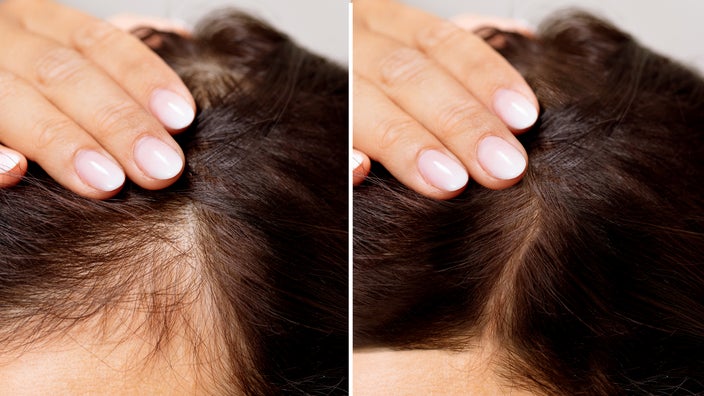Hair loss can impact self-esteem and confidence, but many effective treatments are available today. Here's a breakdown of the best treatments for hair loss, catering to a range of causes, including androgenetic alopecia (male or female pattern baldness), alopecia areata, and thinning due to lifestyle factors.

1. FDA-Approved Medications
a. Minoxidil (Rogaine)
A topical treatment available over-the-counter, minoxidil stimulates hair follicles, prolonging the growth phase. It’s widely used for both men and women, with foam and liquid options.
b. Finasteride (Propecia)
An oral prescription medication for men, finasteride works by blocking DHT (dihydrotestosterone), a hormone linked to hair follicle shrinkage.
c. Dutasteride
Similar to finasteride but more potent, dutasteride is often used off-label for hair loss in men.
d. Spironolactone
Primarily for women, this prescription medication blocks androgen activity, a common contributor to hair loss.
2. Hair Restoration Procedures
a. Hair Transplant Surgery
Techniques like Follicular Unit Transplantation (FUT) and Follicular Unit Extraction (FUE) move hair follicles from areas with dense growth to bald spots for natural-looking results.
b. Scalp Micropigmentation
This non-surgical option uses tattooing to create the illusion of thicker hair or a closely shaved scalp.
3. Advanced Therapies
a. Platelet-Rich Plasma (PRP) Therapy
PRP involves injecting the patient’s own plasma into the scalp to stimulate dormant hair follicles and encourage regrowth. It’s highly effective in early-stage hair loss.
b. Low-Level Laser Therapy (LLLT)
Laser combs, caps, or helmets deliver light to the scalp, improving blood flow and stimulating follicles.
4. Natural and Holistic Approaches
a. Essential Oils
Oils like rosemary, peppermint, and lavender can improve circulation and strengthen hair when massaged into the scalp.
b. Herbal Supplements
Ingredients like saw palmetto and ginseng are believed to block DHT and promote hair health.
c. Scalp Massages
Regular scalp massages increase blood flow, potentially supporting hair regrowth.
5. Dietary and Lifestyle Adjustments
a. Balanced Diet
A diet rich in protein, biotin, zinc, and iron supports healthy hair. Foods like eggs, fish, nuts, and leafy greens are excellent choices.
b. Supplements
- Biotin: Strengthens hair and nails.
- Omega-3 Fatty Acids: Improves scalp health.
- Vitamin D: Essential for follicle cycling.
c. Stress Reduction
Chronic stress can lead to hair loss (telogen effluvium). Techniques like yoga, meditation, and regular exercise can mitigate its effects.
6. Emerging Treatments
a. JAK Inhibitors
Oral and topical Janus kinase (JAK) inhibitors, such as tofacitinib, are showing promise in treating autoimmune hair loss, like alopecia areata.
b. Stem Cell Therapy
Research into stem cell treatments for regenerating hair follicles is ongoing, offering potential future solutions.
7. Customized Professional Care
Consulting a dermatologist or trichologist is critical for diagnosing the cause of hair loss and developing a tailored treatment plan. Combining medical, lifestyle, and holistic methods often yields the best results.
Why Early Treatment Matters
Hair loss treatments are most effective when started early. Whether you opt for medication, surgery, or natural remedies, consistency and patience are key.
Comments on “Top Hair Loss Treatments: Comprehensive Options for Every Need”